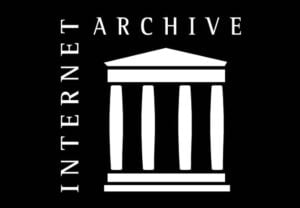 In 2020, publishers Hachette, HarperCollins, John Wiley and Penguin Random House sued the Internet Archive (IA) for copyright infringement, equating its ‘Open Library’ to a pirate site.
In 2020, publishers Hachette, HarperCollins, John Wiley and Penguin Random House sued the Internet Archive (IA) for copyright infringement, equating its ‘Open Library’ to a pirate site.
IA’s library is a non-profit organization that scans physical books, which can then be lent out to patrons in an ebook format. Patrons can also borrow books that are scanned and digitized in-house, with technical restrictions that prevent copying.
Staying true to the centuries-old library concept, only one patron at a time can rent a digital copy of a physical book. These restrictions were temporarily loosened at the height of the Covid epidemic when IA launched the National Emergency Library.
Mass Copyright Infringement or Fair Use?
Patrons happily use the library but not all rightsholders are happy with IA’s scanning and lending activities. The publishers are not against libraries per se, nor do they object to ebook lending, but ‘authorized’ libraries typically obtain an official license or negotiate specific terms. The Internet Archive has no such license.
As such, the publishers see IA’s library as a rogue operation that engages in willful mass copyright infringement, directly damaging their bottom line. As such, they want it permanently taken down.
“Without any license or any payment to authors or publishers, IA scans print books, uploads these illegally scanned books to its servers, and distributes verbatim digital copies of the books in whole via public-facing websites,” their complaint reads.
The Internet Archive wholeheartedly disagreed with the copyright infringement allegations. Stressing that the library offers a vital service, Internet Archive’s defense centered on the legal concept of transformative fair use.
Liability Ruling and Consent Judgment
After weighing the arguments from both sides, New York District Court Judge John Koeltl sided with the publishers. In March, the court granted their motion for summary judgment, which effectively means that the library is indeed liable for copyright infringement.
The court instructed both sides to come up with a consent judgment to determine how the ruling would be reflected in IA’s lending program. After several weeks of negotiations, a proposed agreement was submitted to the court last Friday.
The judgment comes with a permanent injunction that effectively bars the library from reproducing or distributing digital copies of the ‘covered books’ without permission from rightsholders.
These restrictions are subject to appeal, which means that the agreement could be rendered moot if IA wins its appeal, which is currently pending.
Covered Books?
The book publishers and IA agree on nearly all aspects of the proposed judgment except one. The parties still disagree on the term ‘covered books’ and leave this question open for the court.
The publishers would like all of their copyrighted works to be covered by the injunction, including those that are not available in ebook format. IA, on the other hand, believes that digitizing physical books is fair game if the publishers don’t offer a digital version.
“This case involved only works that the Publishers make available as ebooks and so the scope of any injunction should be limited accordingly,” IA explains.
The publishers disagree and stress that the court has already made it clear that IA is not allowed to digitize and distribute print books en masse without permission. Publishers should also have the right not to release ebooks, if they prefer.
“Of key significance, the law is clear that the right to decide whether or not to publish a book in electronic format belongs to its authors and publishers, not IA,” the publishers write.
Next Chapter
The court will now have to decide how broad the definition “covered books” should be. In their proposed judgment, the parties leave this question open, as shown below.

What’s clear, however, is that IA must make changes to its lending program. The organization says that it will communicate these to its patrons, once the judgment is approved.
At the same time, the library also made clear that it will fight the underlying order, as it believes that libraries should be able to digitize and lend books outside the strict licensing ecosystem.
“Libraries are under attack at unprecedented scale today, from book bans to defunding to overzealous lawsuits like the one brought against our library,” Internet Archive founder Brewster Kahle says.
“These efforts are cutting off the public’s access to truth at a key time in our democracy. We must have strong libraries, which is why we are appealing this decision,” Kahle concludes.
Meanwhile, IA has a new legal battle on its hands as the non-profit was sued by several prominent record labels on Friday. The companies accuse it of blatantly infringing copyrights in hundreds of thousands of sound recordings.
—
A copy of the proposed consent judgment submitted to the court on Friday is available here





